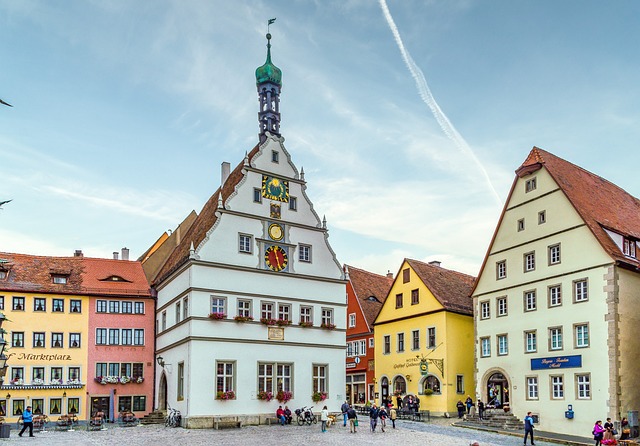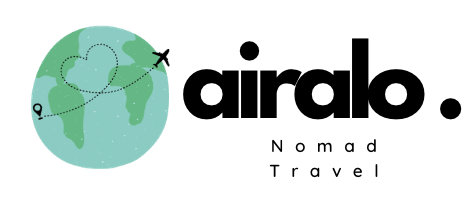
With the rise of digital working methods, more and more professionals are choosing to become “digital nomads” and work and live around the world. As one of the important economies in Europe, Germany’s high-quality living environment and complete social security system have attracted a large number of digital nomads. Against this background, Germany launched the Digital Nomad Visa (Freiberufler Visa) to provide a convenient way for non-EU citizens who want to live and work in Germany for a long time. This article will introduce in detail the application conditions, process, advantages and precautions for the German Digital Nomad Visa.
1. Overview of the German Digital Nomad Visa
Germany’s Digital Nomad Visa (Freiberufler Visa) provides global freelancers and remote workers with an opportunity to legally live and work in Germany. This visa is designed to attract independent workers from non-EU countries, allowing them to work remotely, freelance or start a business in Germany. Here are some key details about this visa:
1.1 Applicable objects
Germany’s digital nomad visa is not only for solo entrepreneurs, but also for remote workers. Specifically:
- freelancer: People who want to engage in their own business activities in Germany and provide independent professional services (such as designers, developers, consultants, etc.).
- remote worker: People who work for a non-German company (whether in their own country or another country) and who are not employed by a German company.
Applicants do not need to find an employer in Germany, but only need to prove that they have a continuous source of income that is sufficient to maintain their life in Germany.
1.2 Requirements on the nature of work
In order to apply for this visa, applicants must demonstrate that the nature of their work qualifies as a “freelancer” or “teleworker.” This usually means:
- Applicants need to provide validContract or work agreement, demonstrate that you have ongoing projects or clients.
- If the applicant is a freelancer, he/she needs to provide supporting documents (such as tax registration certificate, contract, bank statement, etc.) to prove the nature of his independent work and his ability to be financially self-sufficient.
1.3 Economic self-sufficiency
Applicants must provide sufficient financial evidence to prove that their income is sufficient to support their life in Germany. Specific requirements include:
- Bank deposit certificate: Prove that the applicant has sufficient funds to pay for accommodation, food and daily expenses in Germany.
- Proof of income source: Such as existing customer contracts, work agreements or tax records, etc., proving that the applicant has a stable source of income.
The German immigration office usually sets a minimum income standard (generally a monthly income of 2,000 euros or more), and the specific amount may vary slightly depending on the cost of living in the city where you are applying.
1.4 Social security and welfare
After obtaining a digital nomad visa, applicants will be eligible to participate in Germany’s social security system. This includes:
- health insurance: All foreigners residing in Germany for more than 3 months are required to have valid health insurance, either public health insurance or private health insurance.
- Pension insurance: Although it is generally not compulsory for freelancers to participate in Germany’s public pension schemes, they can choose to make voluntary contributions to guarantee future retirement benefits.
- unemployment insurance: If you are a self-employed person, it is usually not covered, but you can choose to join relevant insurance plans.
1.5 Visa validity and extension
The German digital nomad visa is usually valid for3 months to 3 years, the specific length of time depends on the applicant’s personal situation and the supporting materials submitted. Before the visa expires, applicants can apply to extend the visa, or switch to other types of visas (such as entrepreneurial visas) according to their own circumstances. When extending a visa, applicants usually need to prove that their residence and work situation in Germany continues to meet the requirements.
1.6 Living and working environment in Germany
Germany is considered an ideal digital nomad destination with the following advantages:
- high quality of life: Germany has a world-class medical system, a complete education system and an efficient public transportation network, providing convenient and safe living conditions for digital nomads.
- good working environment: Major cities in Germany (such as Berlin, Munich, Frankfurt, etc.) have a large number ofcoworking spaces, places where digital nomads can find a comfortable work environment and network with other entrepreneurs and professionals.
- Cultural and creative resources: Germany’s rich cultural background and creative industries provide diverse inspiration and collaboration opportunities for digital nomads, especially in the creative industries, technology fields and financial technology.
1.7 Tax and Legal Compliance
While the digital nomad visa gives freelancers and remote workers permission to reside in Germany, digital nomads still need to understand and comply with German tax regulations. Applicants need:
- Understand tax obligations: Even if you are a remote worker, if you live in Germany for more than a certain period of time, you may still need to pay personal income tax according to German tax law.
- tax registration: Freelancers usually need to register with the tax bureau, obtain a tax ID number, and declare income regularly.
2. Application conditions
To apply for a German digital nomad visa, applicants need to meet a series of specific requirements, which mainly cover personal identity, financial ability, professional qualifications, health protection and living arrangements. The following are detailed application conditions:
(1) Personal identity and nature of work
Applicants must be fromNon-EU countriesof freelance or remote workers. Specific requirements include:
- work independently: The applicant’s work must be independent work, such as freelance, contract work, etc. Jobs that are of an employee nature (i.e. employed by a German company) are generally not eligible for a digital nomad visa.
- Work certification materials: Applicants need to provide documents proving their freelance or remote work, such as:
- Contract or work agreement: These documents should clearly indicate the nature of the applicant’s work, including working hours, remuneration, contract period, etc.
- Customer or company testimonial: If the applicant provides services to multiple clients, you may be required to provide letters of recommendation or confirmation from clients indicating the authenticity of the working relationship.
- project files: If the work is being carried out through a project contract, the applicant can provide the contract or agreement for the relevant project.
(2) Economic self-sufficiency
In order to ensure that the applicant does not rely on public resources while in Germany, the applicant must prove that he or she has sufficient financial ability to support himself/herself. Specific requirements include:
- Income standard: Applicants need to prove that their monthly income is at least the minimum standard of living in Germany, which is usually around €2,000 (may vary depending on the city and personal lifestyle). The income criterion includes all legitimate sources of income, such as work contracts, remuneration paid by clients, etc.
- Financial documentation:
- tax records: Provide tax records from the past one to two years to demonstrate a stable source of income.
- Bank deposit certificate: The bank deposit certificate can show that the applicant has sufficient funds to support his or her living expenses while living in Germany.
- Proof of contract income: If the applicant has signed a long-term contract with the customer, a copy of the contract can be provided to prove stable income in the future.
- Revenue invoice: For freelancers, it is possible to submit records of invoices issued, showing past earnings and payment history from clients.
(3) Appropriate professional qualifications
Applicants need to demonstrate that they have sufficient professional qualifications and abilities to ensure that their work in Germany is legal and professional. Specific requirements include:
- Academic certificate: Submit relevant academic credentials, such as a university degree or professional training certificate, to prove your educational background in your field.
- Professional qualifications: For some fields (such as medicine, law, etc.), professional qualification certificates or industry-recognized certificates may be required.
- work experience: If the applicant does not have a formal academic certificate, he or she can also provide relevant proof of work experience, such as a work recommendation letter, job description or project experience, to prove his or her ability in this field.
(4) Health insurance
Applicants must provide proof of valid health insurance during the application process. Under German law, everyone living in Germany for more than three months is required to purchase health insurance. Specific requirements include:
- health insurance type: Applicants can choose to purchasepublic health insurance(Statutory health insurance, GKV)或private health insurance(Private Krankenversicherung, PKV). No matter which insurance you choose, you must make sure it covers your medical needs in Germany.
- public health insurance: Suitable for most freelancers and people with lower incomes. Public insurance generally has lower costs, but premiums are calculated based on income.
- private health insurance: Suitable for freelancers with higher income or specific needs. Private insurance often offers more flexible service options, but costs are relatively higher.
- insurance coverage: Health insurance must cover all necessary medical services, including first aid, hospitalization, medications, etc.
(5) Proof of residence
Applicants need to provide information in GermanyProof of residential address, proving that they have legal and stable accommodation arrangements in Germany. Proof of residence can be:
- lease contract: Provide a copy of the rental contract showing the applicant’s address in Germany and the rental period. The lease contract needs to be signed by the landlord and clearly shows information such as the lease term and rent.
- Proof of accommodation: If the applicant is staying through other means (such as a friend’s house, shared accommodation, etc.), he or she can provide proof of accommodation and explain the details of the accommodation arrangement.
3. Application process
Applying for a German digital nomad visa is a systematic and rigorous process, covering many aspects from preparing materials to finally obtaining the visa. The following is the detailed application process:
(1) Prepare materials
Applicants must prepare a series of necessary documents and supporting materials to ensure that the application meets the requirements of the German Immigration Service. Commonly required materials include:
- Valid passport: The passport must be valid for at least six months and must have at least two blank visa pages.
- Resume: The resume should list in detail the educational background, work experience, skills, project experience, etc., especially the parts related to the job application. Resumes should be written in accordance with the European Union standard format (Europass) to ensure conciseness and clarity.
- Bank deposit certificate: The bank balance certificate must show a sufficient balance to prove that the applicant can be self-sufficient in Germany. Generally speaking, savings should cover at least 3 to 6 months of monthly living expenses. The certificate of deposit is generally required to be issued within the past three months.
- Contract or work agreement: Applicants will need to provide a contract or work agreement with a client or employer to prove their status as a remote worker or freelancer. The contract should detail the work content, remuneration, time limit and other terms.
- Academic certificate: If the applicant’s job requires a specific academic background, he or she must submit relevant degree certificates or other relevant supporting materials.
- Proof of health insurance: Applicants need to provide valid proof of health insurance to prove that they have purchased health insurance that covers medical services in Germany. You can choose private health insurance or public health insurance, and proof of insurance must show the name of the insurance company, coverage, policy number and validity period.
- photo: A standard passport photo, usually taken recently, measuring 35mm x 45mm.
- Proof of residence: Provide a rental contract or accommodation certificate to prove that the applicant has a stable place of residence in Germany and that the accommodation arrangement complies with German regulations.
(2) Submit application
After preparing all materials, applicants can choose the following ways to submit their application:
- Submit your application through the German embassy or consulate in your country: Applicants from most non-EU countries need to go to the German embassy or consulate in their country to submit a visa application. Applicants need to make an appointment in advance and submit materials in person.
- Apply directly through the German Immigration Service: Applicants from certain countries (e.g. those already in the EU) can submit their application directly to the German Immigration Agency (Ausländerbehörde). If the applicant is already in Germany and meets certain conditions (such as a tourist visa or other short-term visa), it may be possible to apply for conversion to a digital nomad visa from within the country.
- Electronic application: Applicants from some countries can submit some materials through the German Immigration Bureau’s online platform, but generally still need to submit original documents when meeting at the embassy, consulate or immigration office.
Applicants from different countries may have slight differences in submission methods. Applicants should choose the appropriate submission method according to the requirements of the embassy or consulate in their country or the specific guidelines of the Immigration Bureau.
(3) Review and interview
After submitting the application, the German Immigration Service will review the applicant’s materials. During the review process, applicants may be asked to provide more details or supplementary materials. Audits usually include the following aspects:
- financial status review: The Immigration Bureau will carefully review the applicant’s bank deposit certificate, source of income and other financial materials to ensure that the applicant can independently support the living expenses in Germany.
- Employment background check: Applicants’ work experience and nature of work will be scrutinized in detail, particularly whether they meet the requirements for a digital nomad visa as a freelancer. The Immigration Service will assess the legality and validity of the work contract.
- interview: In some cases, applicants may be required to attend an interview, which may include work experience, financial capabilities, and eligibility for freelance status. Interviews are usually arranged by the embassy, consulate or immigration office and may be in person or via video call.
During the interview, applicants should answer questions clearly and honestly and provide additional details to ensure they qualify for the Digital Nomad Visa.
(4) Visa approval
If the review process goes smoothly and all materials meet the requirements, the applicant will be granted a German Digital Nomad Visa. Once the visa is approved, the applicant needs to follow the following steps:
- Visa validity: Visa is usuallyFrom three months to three years, the specific validity period is determined by the Immigration Bureau based on the applicant’s situation. If you are applying for the first time, your visa may be valid for a shorter period, usually around one year. Afterwards, the applicant can apply for continuation or renewal.
- Visa extension: Before the visa expires, the applicant can apply for extension or renewal. This usually requires proving that the applicant’s employment and income status still meets the requirements, and submitting relevant financial and employment certificates.
- visa conversion: If the applicant wishes to convert to another type of visa (such as long-term residence visa or family reunion visa), he or she can also submit a conversion application before the visa expires.
4. Advantages of the German Digital Nomad Visa
The German digital nomad visa provides many conveniences for remote workers and freelancers. Its advantages are reflected in many aspects, ensuring that digital nomads can live and work efficiently and comfortably in Germany. Here are the specific advantages of the German Digital Nomad Visa:
(1) High quality of life
Germany is one of the countries with the highest quality of life in the world. With its highly developed social infrastructure, clean environment, and world-class public services, it attracts a large number of digital nomads. German cities are usually well-ordered and have complete public transportation, sanitation facilities, green spaces, etc., making daily life more convenient and comfortable. In addition, the quality of education and cultural life in Germany also provide digital nomads with a rich spiritual and social life. Whether it’s Berlin’s creative community or Munich’s high-tech scene, Germany offers an ideal living environment for digital nomads.
(2) Strong social security
Germany’s social security system is among the best in the world, which is particularly important for digital nomads. Applicants holding a digital nomad visa, especially individuals who have lived in Germany for a long time, can enjoy Germany’s comprehensive social welfare. For example,health insuranceIt is legal in Germany that all residents must have health insurance, which ensures that even remote workers can receive prompt medical care in the event of illness or injury. In addition, Germany’spension systemandunemployment insuranceIt also provides additional security for digital nomads, reducing their worries about encountering risks at work. For digital nomads who rely on freelance work, the comprehensiveness of Germany’s social security system provides a reliable backing.
(3) Free and flexible working style
One of the biggest advantages of Germany’s digital nomad visa is that it provides freelancers and remote workers with legal residence status in Germany, which means that digital nomads do not need to be bound by traditional employment relationships and can enjoy complete freedom. Applicants are free to choose their own work projects, decide working hours and working methods. This kind of flexibility is unmatched by many traditional work models. Whether taking orders on a freelance basis or working with multiple clients, digital nomads can personalize their schedules based on their interests and expertise without having to worry about legal or visa restrictions. Germany’s freelancer-friendly policies further promote flexible working.
(4) Convenience of the European market
asEU member states, Germany offers digital nomads a unique advantage in accessing the European market. Germany is located in the heart of Europe, allowing digital nomads to easily visit other EU countries and work, travel, and expand their business throughout Europe. For digital nomads interested in expanding their client network or collaborating internationally, Germany offers an ideal location. Starting from Germany, digital nomads can easily travel to France, the Netherlands, Switzerland and other countries, and enjoy visa-free treatment within the EU. At the same time, Germany is also very active in promoting cross-border cooperation, providing digital nomads with more cooperation opportunities and international perspectives.
(5) Provide entrepreneurial opportunities
In addition to providing an ideal working environment for freelancers and remote workers, Germany’s digital nomad visa also provides a wealth of support and resources for digital nomads interested in starting a business in Germany. GermanEntrepreneurial EcosystemIt is very mature, and the government provides a series of tax incentives, financing support and innovation incubators, which can help digital nomads easily start and grow their own businesses. Germany also has manyEntrepreneurship Incubatorandaccelerator, providing financial support, technical resources, market expansion and other services to start-ups to help entrepreneurs grow rapidly. For those digital nomads interested in entering the German market or expanding to the European market, Germany’s policies and resources undoubtedly provide a good starting platform.
5. Precautions
When applying for and living in Germany as a digital nomad, in addition to enjoying the benefits of a visa, there are also some key things you need to pay attention to to ensure a smooth life and work in Germany.
(1) Language barrier
Although German is the official language of Germany, in big cities such as Berlin, Munich, Frankfurt and other places, especially in the technology, creative and international industries,English is widely spoken. Many companies and workplaces offer an English-speaking environment, especially in the technology industry, where English is almost the working language. However,daily life, especially when it comes to shopping, medical care, and communicating with government departments, German is still the dominant language. In order to better integrate into German society and cope with various affairs smoothly,Learn basic Germanis very helpful. Even for simple daily communications, such as asking for directions, understanding shopping information, medical visits, etc., mastering some basic German vocabulary and sentences can greatly improve the quality of life. In addition, many cities and online platforms offer German language learning courses, especially for foreign residents, which can help digital nomads adapt to local life faster.
(2) Tax issues
Germantax systemVery strict, as a digital nomad, you must understand and comply with the relevant tax regulations. If you earn income in Germany, even if you work remotely or freelance, you may need to declare and pay taxes to the German Tax Agency. Germany’s tax system includes income tax, value-added tax (VAT), etc., and the tax rates also vary depending on the amount of income. For those digital nomads who live in Germany for a long time, if their annual income exceeds a certain threshold, they will need to paypersonal income tax. Additionally, if a digital nomad works for a company in multiple countries, they may need to deal with multi-country tax issues, which may involvedouble tax agreement(DTA) and other complex situations. Therefore, it is recommended that digital nomads consult a professional before traveling to Germany.tax consultant, help clarify how to pay taxes legally and compliantly and avoid unnecessary tax troubles.
(3) Application time
The visa application process for Germany usually takes a long time.Review cycleIt may take up to 2 to 3 months, especially if a large amount of material needs to be submitted and reviewed in detail. Therefore, in advancePlanning and preparing materialsVery important. Applicants should make sure to prepare documents including passport, bank deposit certificate, contract or work agreement, academic certificates, health insurance certificate and other documents in advance. In particular, materials such as health insurance, bank deposit certificates, and income certificates often need to accurately reflect the applicant’s financial status and stability. To avoid any delays or omissions during the application process, it is recommended to contact theGerman embassy or consulate in the host countryorimmigration consultantCommunicate, confirm the latest requirements for required documents, and conduct adequate checks before submitting your application.
(4) Visa extension
Digital nomad visas usually havefixed validity period, ranging from three months to three years, for example. After your visa expires, if you want to continue to stay in Germany, you need to apply for extension or change of visa type. During the visa extension process, applicants need to ensure that their tax and work status in Germany are compliant. For example,Proof of income、health insurance continuity, and tax declaration records, etc., may be used as important materials for visa extension. If you plan to stay longer after your visa expires, you may also consider converting your digital nomad visa to another type of visa, such asEntrepreneurship visa、blue card(for high-skilled workers), etc., to accommodate different long-term residential needs. During this process, ensuring that no visa conditions are breached and that required documents are submitted in a timely manner are important safeguards to avoid visa disruption.
in conclusion
Germany’s digital nomad visa offers an ideal opportunity for freelancers and remote workers across the globe, especially those seeking a high-quality living and working environment in Europe. Through this visa, applicants can not only legally reside and conduct business in Germany, but also participate in Germany’s comprehensive social security system. Although the application process is complex and the conditions involved are relatively strict, once the requirements are met, applicants will be able to enjoy the efficient public services, rich cultural resources and vibrant entrepreneurial environment provided by Germany.
For digital nomads who intend to live and work in Germany for a long time, understanding the specific requirements of the visa, preparing sufficient application materials, ensuring financial self-sufficiency, and participating in social insurance legally and compliantly are the keys to a successful application. In addition, as more and more remote workers join Germany’s digital nomad community, applicants can not only enjoy the flexibility of personal life and work, but also integrate into a multicultural and innovative society.
Overall, Germany’s digital nomad visa provides an attractive option for global professionals, taking full advantage of Germany’s social and economic advantages and providing a stable and promising work and life platform for digital nomads.





